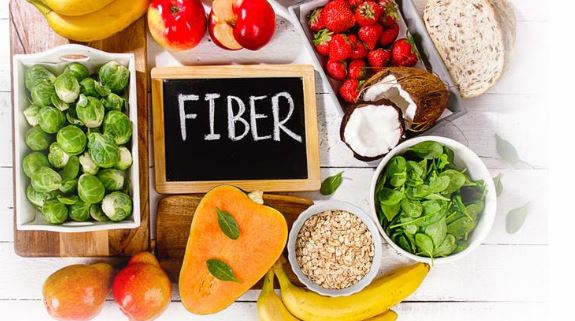
It is recommended to eat more high-fiber foods to boost your digestive health and reduce weight gain. But what is fiber and how much one should consume in a day?
Ishti Saluja, a professional nutritionist and diet coach based in London, says “Roughage and bulk are both names for dietary fiber.
They’re parts of plant food that the body cannot digest or absorb. Instead, it passes relatively intact through your stomach, small intestine, colon and out of the body.”
The recommended daily fiber intake is about 25-30 grams, and this is equal to approximately 400g of fruit and vegetable per day, she adds.
So, are you getting enough fiber daily?
Benefits of eating more fiber
Below nutritionist shares five reasons why you should add more fiber to your diet:
1. Strengthens the gut lining
Fiber feeds the good bacteria in the gut. The more you feed it, the more it will flourish, making the gut lining stronger. When the lining is weak, toxins, harmful bacteria, partially digested food ‘leak’ into the bloodstream, causing inflammation to go up. This leads to conditions like high cholesterol, weight gain, brain fog, low energy, weaker immunity and micronutrient deficiencies. A strong gut lining is crucial to absorbing nutrients to maintain regular body functions.
Just a 2-week increase in fiber intake can significantly strengthen a person’s gut lining
2. Helps in weight management
Fiber comes under the carbohydrate category which traditionally has a negative reputation when it comes to weight management, but fiber is nutrient dense which means they have fewer calories for the same volume of food. This increases satiety or the feeling of fullness. It reduces hunger pangs, which also reduces food cravings, overeating, thus helping you manage your weight in the long run.
3. Lowers risk of heart disease:
A diet rich in soluble fiber keeps the LDL or “bad” cholesterol levels in check, overall reducing total cholesterol, which helps keep arteries unclogged. This results in less inflammation, thereby reducing pressure on the heart, lowering chances of heart diseases. Good sources of soluble fiber are green beans, oats, broccoli, brussels sprouts, chia and flax seeds.
4. Promotes healthy bowel movements
Dietary fiber increases the weight and size of stool and thus, softens it. This makes stool easier to pass, reducing chances of constipation. In the case of diarrhoea, dietary fiber will help solidify stool because it absorbs water and adds bulk to it. Consuming chia seeds and ground flax seeds (1 tablespoon each, soaked overnight in water, with a pinch of cinnamon and turmeric) show remarkable results in improving bowel movements.
5. Helps maintain hormonal balance
Too much of a good thing is sometimes not ideal, and that’s the case with estrogen! It’s one of the most important hormones for women it’s needed, but not too much. Estrogen is processed by the liver, and excess of it should ideally be excreted, but irregular bowel movements result in estrogen circulating back into the body. This is known as estrogen dominance, which can be the root cause of many symptoms like bloating, irregular periods, mood swings, headaches, anxiety and fatigue. Seed cycling is a wonderful tool to add fiber to your diet and balance your hormones at the same time.
How can you increase your fiber intake?
Here are some ways to add your fiber to your diet, as suggested by Saluja:
- Make whole grains your best friends oats, quinoa, buckwheat, bulgur wheat.
- Start your day with chia seeds just 2 tablespoons soaked overnight gives your 10 grams of fiber, that’s one-third of your daily requirement.
- Spice up your vegetables and get creative. Vegetables like broccoli, cauliflower, asparagus, green beans, carrots have a great texture once baked in an oven!
- Add leafy greens like kale and spinach to your daals they’re quite tasteless in flavour but packed with fiber.
However, the expert cautions that increasing the fiber intake too fast can lead to issues like constipation and bloating. She suggests that the best way to increase your fiber intake is to take it slowly and drink plenty of water to keep things moving smoothly.

